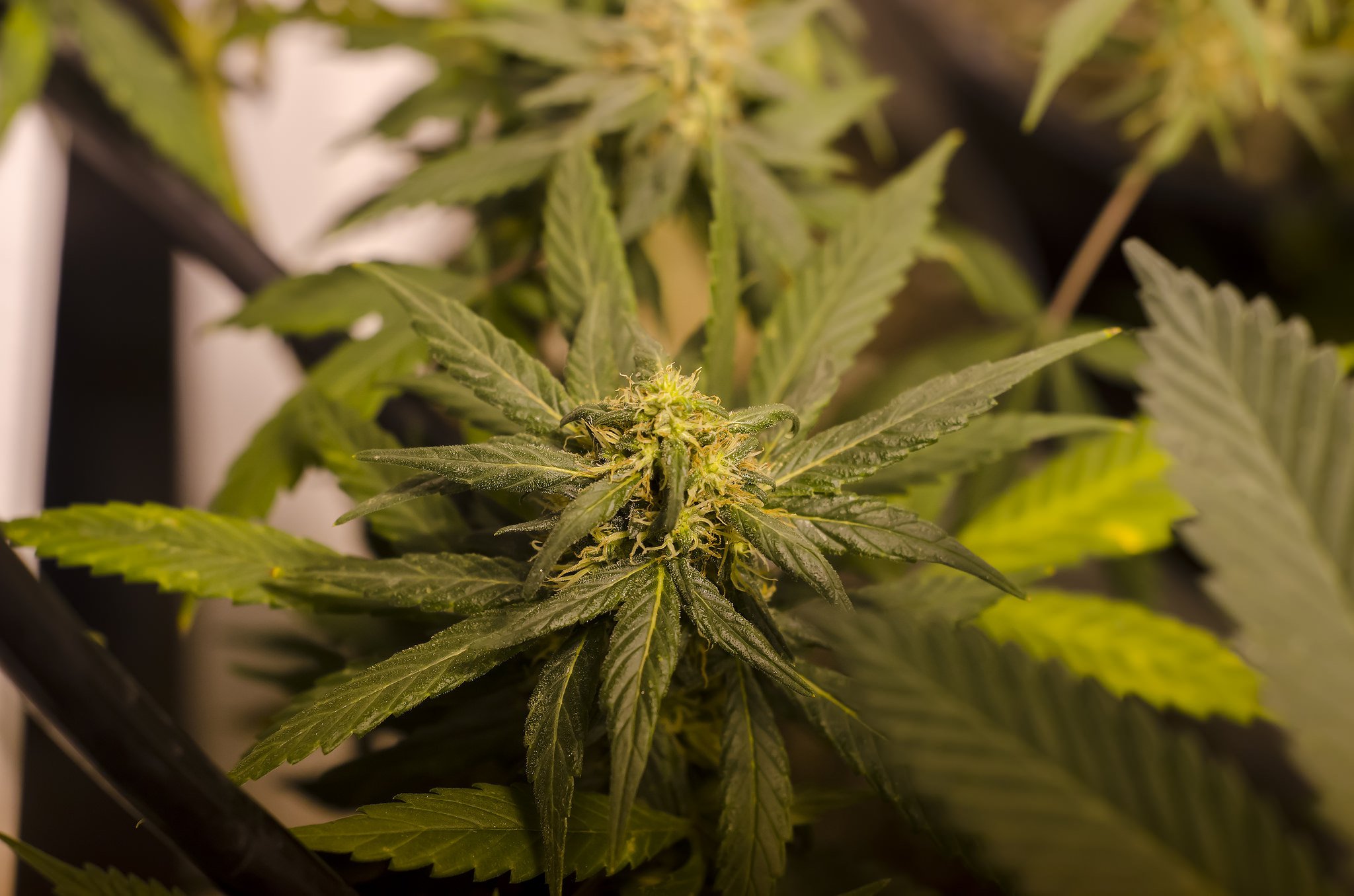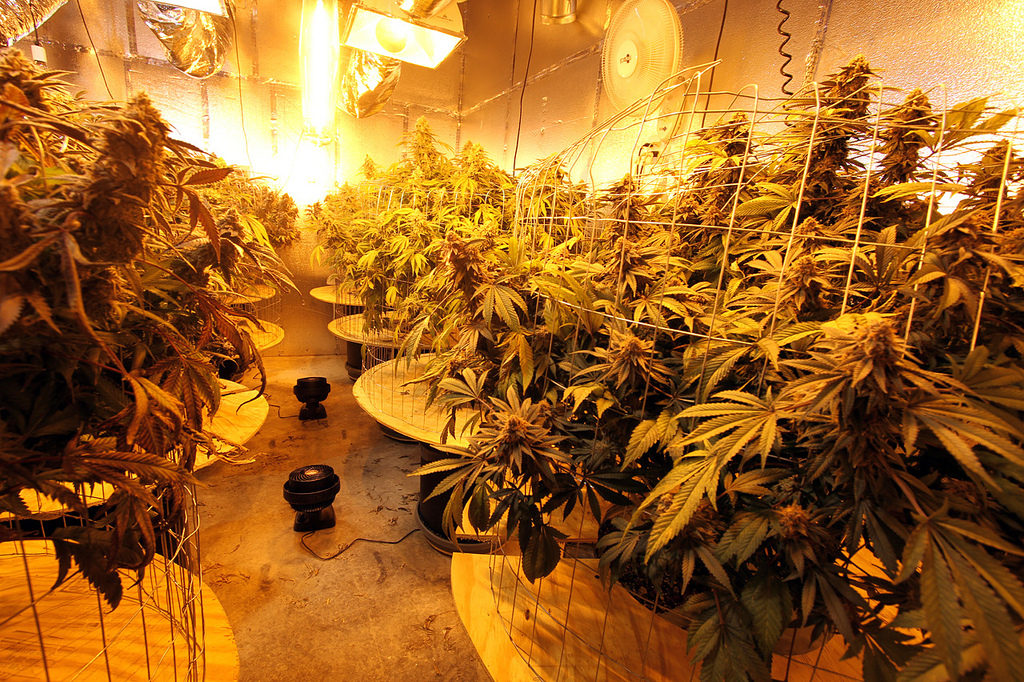The Future of Marijuana Under a Trump Administration
 https://www.flickr.com/photos/121483302@N02/14875946061/in/photolist-oEx7uD-swezVy-qRQiom-nTQWp9-5D7uwE-X15ehz-rbu67Z-qeQkyr-rbCYCH-qeQk3M-b1nrLT-obkffz-qUbaXa-od6CLk-9yjvFV-cwwKmw-obbw4q-rbu6bg-5iMHt2-nTQ3kG-eaACgJ-seXibX-4uNTFz-seXp1n-seXpDM-nTQMk7-4W2GwT-64VQXv-sweFPh-objPnD-9Z3Pcm-seXhDV-sweGoy-swnJJZ-rzpanN-b1nrGv-4W2Gqn-fhJXw-YuK6Wv-YE4Wb-9Z3MqQ-HdBiz-9Z3Ndd-5GdLxW-9Z3Mdh-cj3Mo-9Z3PpN-7Pna4E-7RMsK-9YZSm2
https://www.flickr.com/photos/121483302@N02/14875946061/in/photolist-oEx7uD-swezVy-qRQiom-nTQWp9-5D7uwE-X15ehz-rbu67Z-qeQkyr-rbCYCH-qeQk3M-b1nrLT-obkffz-qUbaXa-od6CLk-9yjvFV-cwwKmw-obbw4q-rbu6bg-5iMHt2-nTQ3kG-eaACgJ-seXibX-4uNTFz-seXp1n-seXpDM-nTQMk7-4W2GwT-64VQXv-sweFPh-objPnD-9Z3Pcm-seXhDV-sweGoy-swnJJZ-rzpanN-b1nrGv-4W2Gqn-fhJXw-YuK6Wv-YE4Wb-9Z3MqQ-HdBiz-9Z3Ndd-5GdLxW-9Z3Mdh-cj3Mo-9Z3PpN-7Pna4E-7RMsK-9YZSm2
Marijuana legalization has been one of the most divisive and controversial issues in US politics for over 20 years now, when states first started to legalize medical marijuana in 1996. Debate surrounding the issue has touched on points such as health benefits, economic ramifications, judicial implications, and morality. However, while these issues were being debated over on a national stage, states have generally been able to pass marijuana legislation with little interference from the federal government, protected by constitutional states’ rights. Most notably the states of Colorado and Washington set a precedent by legalizing recreational marijuana use in 2012. Since then, Alaska, Massachusetts, Maine, California, Vermont, Nevada and Oregon have all passed legislation to legalize the recreational use of marijuana.
However, while these bills were passed with the implicit blessing of the Obama administration, there is now a new sheriff in town. Attorney General Jeff Sessions, earlier this month, declared that it was now a Trump-era policy to take a tougher stance on enforcing federal marijuana laws in legal states. While the declaration doesn’t explicitly force the federal enforcement of marijuana prohibition, it certainly encourages federal law enforcers to take greater action and federally prosecute marijuana business owners and workers for acting legally under state legislature. The declaration could create a domino effect and stymie the proliferation of marijuana for years to come. This policy not only contradicts the Republican stance which for the past decades has championed states rights, but also threatens to put a cap on a hugely popular and economically beneficial industry.
Colorado is one state which has seen the significant benefits of the marijuana industry unfold in front of them. Since implementing legislation which legalized recreational marijuana in January of 2014, the state of Colorado has earned a revenue of over $500 million from marijuana taxes and fees alone. Much of this tax revenue has been taken and reinvested in education and infrastructure in Colorado. When you add the tax revenue to the number of jobs created and private revenue, Colorado has created a billion dollar industry in the space of four years thanks to the legalization of recreational marijuana.
Marijuana has also progressed beyond its antiquated public perception as a morally reprehensible or dangerous drug. Recent Gallup and Pew Research polls have shown that at least 60 percent of adults believe that recreational marijuana should be legalized in the United States, a figure which has dramatically spiked from the all time low of 12 percent in 1970. With a majority of Americans supporting legalization and the proven economic and health benefits of the drug, this new vendetta leveled against the burgeoning industry seems wrongheaded and out of touch with popular opinion.
Sessions’ opinion on marijuana seems to be entirely detached from the polls. In 2016 Sessions was quoted as saying, “good people don’t smoke marijuana” and his position on the matter seems to be fairly consistent. While his position on marijuana falls directly in line with the new policy, Sessions’ declaration most likely came as a part of the Trump administration’s recent attempts to denigrate and repeal Democratic policies established under the Obama administration. Marijuana legalization has been a long term goal for many Democrats. Legalizing recreational marijuana use has become a real part of the Obama legacy. In a fashion similar to the repealing of Obamacare and federal EPA reform, marijuana legalization seems to be under attack primarily for being a part of the Obama legacy.

However, it seems unlikely that Sessions’ statement will necessarily overhaul the progress already made on marijuana legalization. Even after the statement, Vermont’s legislature collectively decided to legalize the recreational use of marijuana, the first time a legislature has decided to legalize the recreational use of the drug rather than leaving it to the popular vote. Similarly, District Attorneys from Massachusetts and Colorado have shown gentle resistance to the federal change of stance on marijuana legalization. This federal-state friction is often a fixture of the American political system, and often the deadlock has to be broken by the Supreme Court, which seems unlikely in the case of marijuana legalization.
While Sessions’ threat seems to be an empty one, it is perhaps a negative sign that the federal government is intent on playing no part in encouraging the growth and fairness of the marijuana industry. Marijuana is one of the fastest growing industries in America, shattering all projections for its development by growing 33% in 2017 and amassing $10 billion in sales nationwide. However, federal regulations currently exist which prevent many legal cannabis dispensaries from receiving bank loans or even insurance, relying instead on individual investors or credit unions. The removal of these regulations would see the marijuana industry balloon to new heights and further benefit state or even federal income.
The prospects for the marijuana industry in the US are undeniably promising. In Canada, still months before official legalization, marijuana production generates more domestic revenue than both the alcohol and tobacco industry, according to Statistics Canada. For an administration that has barked a lot about creating more jobs, this Trump administration seems to be not only ignoring, but also suppressing, a clear solution. CNN projects marijuana jobs to more than double in three years, even without the removal of federal regulations. If the regulations were removed, it’s possible the US could see the creation of hundreds of thousands of jobs in three years, just from the marijuana industry. When you add this to the proposed idea that government-backed medical marijuana could present a possible solution to the opioid crisis, it appears that Trump is missing out on a golden opportunity to quickly change the narrative surrounding his current presidency.
Unfortunately, however, federal support for the marijuana industry is merely the first step in ensuring marijuana can have the same success that has been seen in Colorado and Washington. New federal and state regulations will have to be drawn up to ensure this brand new industry runs smoothly at every level. Ethical and environmentally friendly cultivation, fair wages for pot industry workers, and financial transparency are a fraction of the numerous points of difficulty which marijuana regulations will have to iron out.
Furthermore, the reparations which marijuana legalization has promised to deliver on have become a crucial element of the legalization effort. For decades, long-term sentences, and on rare occasions life sentences, have been handed out for marijuana possession. The war on drugs, and specifically the war on marijuana, has been a poorly executed plan at best, and at its worst it is considered a form of systematic racism through mass incarceration. However, now marijuana is trendy and becoming more widely accepted. Silicon Valley has been investing in it, distributors are getting small fortunes over the space of a few months, and magazines from Forbes to Vanity Fair are talking about its appeal. While all of this goes on, there are still people in jail, most of whom are minorities, who are there for selling weed, just as thousands currently do in Colorado and Washington. People have had their lives ruined and the least that the government can do is repay these people by allowing them to take part in the new industry. However, most state laws prohibit anyone with a felony or misdemeanor from participating in any stage of the production and commercialization of marijuana and as a result, the new marijuana industry has been closed off for those who may have sold or even possessed marijuana in years prior. For the legalization of marijuana to truly be successful, social action has to be taken to repair the damage the war on drugs has caused communities by putting non-violent offenders away for disproportionately long sentences.
There is still a very long road ahead for marijuana legalization, but it is clear that we are in the midsts of a pivotal point in the drug’s history. How the marijuana industry develops and how the new era of weed legalization will unfold depends entirely on state and federal legislation that will be passed in the next couple of years. While this is an exciting time for marijuana, it is also a time to be cautious and mindful of what legalization represents for the people of America.
Alfie Crooks is a third year Honours Political Science student at McGill University. He is from New York and has written for the MIR since January 2017. He has yet to be shared by Russian bots.
This article has been edited by: Thea Koper
